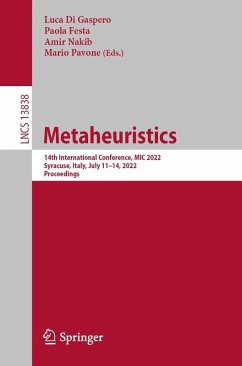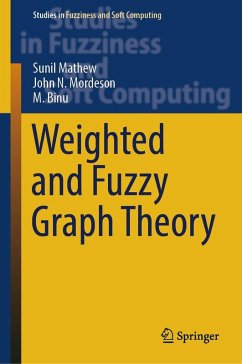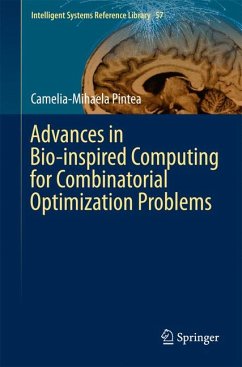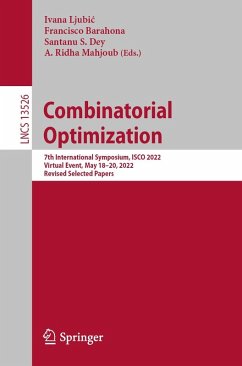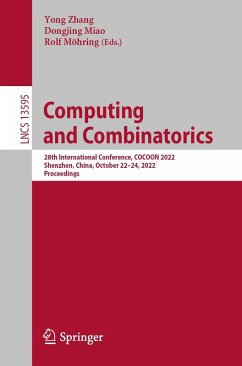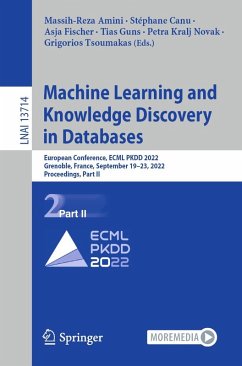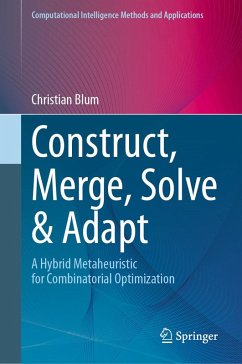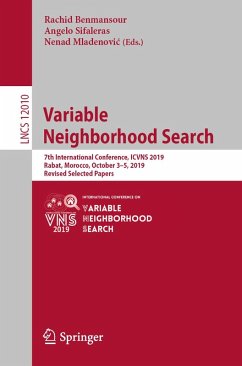
Guide to Graph Colouring (eBook, PDF)
Algorithms and Applications
Versandkostenfrei!
Sofort per Download lieferbar
44,95 €
inkl. MwSt.
Weitere Ausgaben:

PAYBACK Punkte
22 °P sammeln!
This textbook treats graph colouring as an algorithmic problem, with a strong emphasis on practical applications. The author describes and analyses some of the best-known algorithms for colouring graphs, focusing on whether these heuristics can provide optimal solutions in some cases; how they perform on graphs where the chromatic number is unknown; and whether they can produce better solutions than other algorithms for certain types of graphs, and why.The introductory chapters explain graph colouring, complexity theory, bounds and constructive algorithms. The author then shows how advanced, g...
This textbook treats graph colouring as an algorithmic problem, with a strong emphasis on practical applications. The author describes and analyses some of the best-known algorithms for colouring graphs, focusing on whether these heuristics can provide optimal solutions in some cases; how they perform on graphs where the chromatic number is unknown; and whether they can produce better solutions than other algorithms for certain types of graphs, and why.
The introductory chapters explain graph colouring, complexity theory, bounds and constructive algorithms. The author then shows how advanced, graph colouring techniques can be applied to classic real-world operational research problems such as designing seating plans, sports scheduling, and university timetabling. He includes many examples, suggestions for further reading, and historical notes, and the book is supplemented by an online suite of downloadable code.
The book is of value to researchers, graduate students, and practitioners in the areas of operations research, theoretical computer science, optimization, and computational intelligence. The reader should have elementary knowledge of sets, matrices, and enumerative combinatorics.
The introductory chapters explain graph colouring, complexity theory, bounds and constructive algorithms. The author then shows how advanced, graph colouring techniques can be applied to classic real-world operational research problems such as designing seating plans, sports scheduling, and university timetabling. He includes many examples, suggestions for further reading, and historical notes, and the book is supplemented by an online suite of downloadable code.
The book is of value to researchers, graduate students, and practitioners in the areas of operations research, theoretical computer science, optimization, and computational intelligence. The reader should have elementary knowledge of sets, matrices, and enumerative combinatorics.
Dieser Download kann aus rechtlichen Gründen nur mit Rechnungsadresse in A, B, BG, CY, CZ, D, DK, EW, E, FIN, F, GR, HR, H, IRL, I, LT, L, LR, M, NL, PL, P, R, S, SLO, SK ausgeliefert werden.



